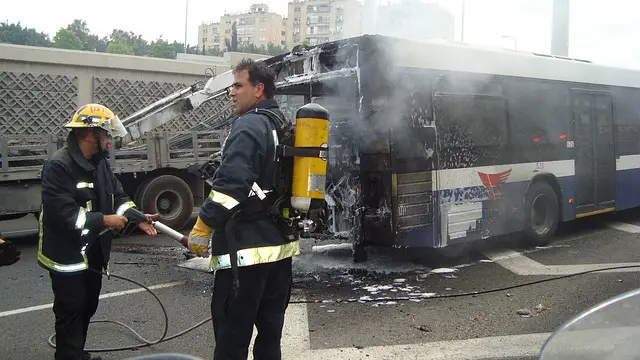
Many people understand the steps to take when they’re in a car accident, but bus accidents are slightly different. You’re not interacting with a private citizen driving a car; you’re dealing with a professional driver behind the wheel of a large vehicle.
Buses cause more damage in an accident than cars, trucks, or SUVs. Find out how to seek compensation from bus accident lawyers with decades of experience.
What To Do After a Bus Accident?
You might experience a bus accident if you’re a pedestrian hit by the vehicle. Cars driven by private citizens can also crash and cause a bus accident. You’re also a victim if you’re on the bus during an accident. Since many buses don’t have seat belts, the harm to passengers can be significant.
Regardless of your role in the accident, these are the steps you should follow in the aftermath. Remember that your safety is of the utmost importance, so focus on getting to a secure location before doing anything else.
Step 1: Contact the Police
It’s crucial that you stay at the scene after a hit-and-run incident in North York if you can. You can call 911 first and prioritize your well-being if you have extensive injuries. But for people in decent shape, you should get to safety and call the police. They need to know about the accident, including the overall state of the passengers, driver, and other vehicles involved in the wreck.
Step 2: Make Notes
After you contact the police, start making notes. Write down everything you remember. For example, if you were a passenger on the bus and heard the bus driver yell that the brakes weren’t working, you should note that. If you were in another vehicle and saw a pedestrian jaywalking right in front of the bus, write it down.
While you’ll stay on the scene to talk to the police, you might find that the stress of the accident interferes with your memory. You don’t want to forget anything, so writing it down is your best option. You should also write down things like:
- The bus’s license plate number (or take a picture of it)
- The bus driver’s information
- The bus’s make and model
You should also avoid talking with the bus driver, passengers, or anyone else involved in the accident. Hearing other accounts of what happened may impact your story or cause you to forget critical details.
Step 3: Seek Medical Attention
Once you give your statement to the police, you should seek medical attention, even if you feel fine. An accident can cause internal damage that you don’t feel for days, weeks, or months. Getting checked out at the hospital will ensure your internal organs are in good shape. The doctor can also determine if you have whiplash or other invisible injuries.
Step 4: Hire a Lawyer
You need to hire a lawyer if you have injuries from a bus accident. You can also hire a lawyer if your vehicle is part of the wreck. A professional attorney knows how to hold everyone accountable and get you the compensation you deserve. They have experience dealing with involved parties you might not consider, like bus drivers, companies, and manufacturers.
Your lawyer can also handle communication with your insurance company. They will look into the police report and any additional investigations into the accident and possible causes of the wreck. Experienced attorneys know the expected outcome of this type of case, so they can fight for you until you get fair results.
Final Notes
There’s no need to experience stress after you’re in a bus accident. You should focus on healing while an experienced attorney handles everything for you. They will be your point of contact and help you understand the ideal compensation for your injuries, property damage, and other factors that impact your quality of life.










